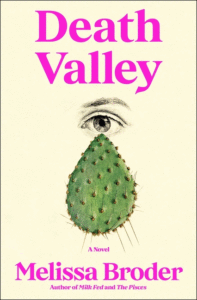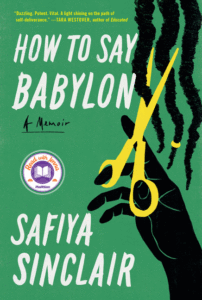
Benjamín Labatut’s The MANIAC, Safiya Sinclair’s How to Say Babylon, Lydia Davis’ Our Strangers, and Melissa Broder’s Death Valley all feature among the best reviewed books of the week.
1. The MANIAC by Benjamín Labatut
(Penguin Press)
5 Rave • 9 Positive • 1 Mixed
“Darkly fascinating … Riveting … Labatut handles all of this with impressive dexterity, unpicking complex ideas in long, elegant sentences that propel us forward at speed (this is his first book written in English). Even in the more feverish passages, when yet another great mind succumbs to madness, haunted by the specters they’ve helped unleash on the world, he feels in full control of his material.”
–Killian Fox (The Observer)
2. Our Strangers by Lydia Davis
(Bookshop Editions)
6 Rave • 1 Positive • 1 Mixed
Read an interview with Lydia Davis here
“Lydia Davis is a sly miniaturist whose distinct blend of personal reflection, flash fiction, and poetic concision serve up little epiphanies in shot glass-sized portions … Fortunately, Our Strangers, which is Bookshop.org’s first publication, is notable for more than its author’s stand against online behemoths … I’ve enjoyed Davis’s koan-like stories for years but never reviewed them, in part because I found them more appealing when ingested in micro-doses, like homeopathic remedies, rather than glugged down from start to finish on deadline. Although I still prefer to savor her work in dainty sips, I’m happy to report that, even read straight through, the more than 150 short-shorts in Our Strangers again feature her wry response to what she sees as life’s essential oddness. Her focus has shifted largely from issues of parenting and domestic relationships to aspects of aging, but the results are as penetrating as anything she’s written.”
–Heller McAlpin (NPR)

3. Death Valley by Melissa Broder
(Scribner)
6 Rave • 1 Positive
“Broder turns to a grimmer topic—grief. But her disarming and whimsical style remains intact … Broder’s own gift is for scenes and dialogue that are so natural—in that they reflect the ridiculousness and surrealism of real life—that they tip over into the uncanny. She is also very funny … Never, ever boring.”
–Jessica Ferri (The Los Angeles Times)
**

1. How to Say Babylon by Safiya Sinclair
(37 Ink)
7 Rave
“Astounding … a personal story so fierce, honest and utterly absorbing that it’s impossible to put down. In How to Say Babylon, Sinclair uses that fire she found so long ago to pen a powerful portrait of a young woman cleaving her way out of hardship to wield a mighty voice all her own. … Boundless and beautiful and all the rest, How to Say Babylon is, in a word, a triumph.”
–Alexis Burling (The San Francisco Chronicle)
2. Lou Reed: The King of New York by Will Hermes
(Farrar, Straus and Giroux)
4 Rave • 2 Positive
“Hermes’ captivating new biography, fires on all cylinders: It’s exhaustively researched and opinionated, with a swagger that evokes its volatile subject. For most of the book there’s precious little of Reed’s later domesticity … Hermes writes with kinetic flair … A scrupulous chronicle of a rock outlaw who sought an authentic self on stage.”
–Hamilton Cain (The Star Tribune)
3. Collision of Power: Trump, Bezos, and the Washington Post by Martin Baron
(Flatiron Books)
4 Rave • 1 Positive • 2 Mixed
“Editing and writing are related but separate skills, like directing and acting. Baron turns out to be good at both … Offers something scarcer and far more interesting than most arguments over theory, which is a vivid and detailed chronology of how his part of the press actually did its job … The barbed portraits along the way keep the book lively. I’ll leave them for readers to discover, and I’m sure some of those criticized will respond … As the book ends, Joe Biden is being sworn in as president, and Marty Baron steps aside as an editor, presumably to his next role as a writer. This book is an excellent start.”
–James Fallows (The Boston Globe)

